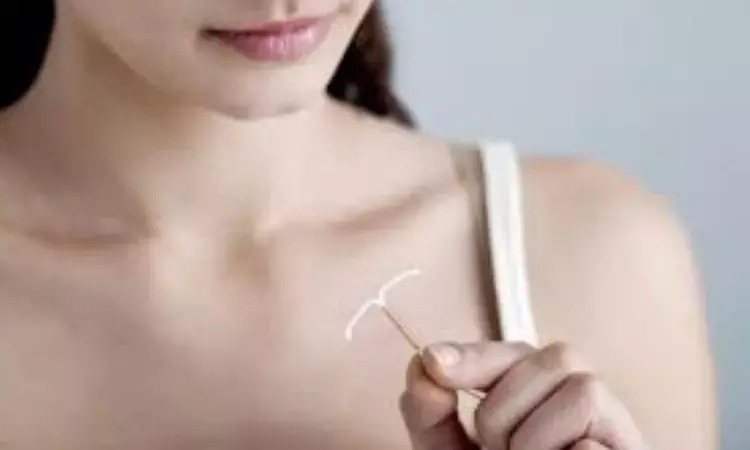- Home
- Medical news & Guidelines
- Anesthesiology
- Cardiology and CTVS
- Critical Care
- Dentistry
- Dermatology
- Diabetes and Endocrinology
- ENT
- Gastroenterology
- Medicine
- Nephrology
- Neurology
- Obstretics-Gynaecology
- Oncology
- Ophthalmology
- Orthopaedics
- Pediatrics-Neonatology
- Psychiatry
- Pulmonology
- Radiology
- Surgery
- Urology
- Laboratory Medicine
- Diet
- Nursing
- Paramedical
- Physiotherapy
- Health news
- Fact Check
- Bone Health Fact Check
- Brain Health Fact Check
- Cancer Related Fact Check
- Child Care Fact Check
- Dental and oral health fact check
- Diabetes and metabolic health fact check
- Diet and Nutrition Fact Check
- Eye and ENT Care Fact Check
- Fitness fact check
- Gut health fact check
- Heart health fact check
- Kidney health fact check
- Medical education fact check
- Men's health fact check
- Respiratory fact check
- Skin and hair care fact check
- Vaccine and Immunization fact check
- Women's health fact check
- AYUSH
- State News
- Andaman and Nicobar Islands
- Andhra Pradesh
- Arunachal Pradesh
- Assam
- Bihar
- Chandigarh
- Chattisgarh
- Dadra and Nagar Haveli
- Daman and Diu
- Delhi
- Goa
- Gujarat
- Haryana
- Himachal Pradesh
- Jammu & Kashmir
- Jharkhand
- Karnataka
- Kerala
- Ladakh
- Lakshadweep
- Madhya Pradesh
- Maharashtra
- Manipur
- Meghalaya
- Mizoram
- Nagaland
- Odisha
- Puducherry
- Punjab
- Rajasthan
- Sikkim
- Tamil Nadu
- Telangana
- Tripura
- Uttar Pradesh
- Uttrakhand
- West Bengal
- Medical Education
- Industry
IUD insertion in early postpartum period linked to perforation risk: Lancet

USA: A new study conducted by Susan D. Reed and colleagues showed that the risk of uterine perforation is roughly seven times higher with intrauterine devices (IUD) placement at 4 days to 6 weeks or less postpartum. Perforation remains an extremely unusual occurrence in all clinical time periods. The findings of this study were published in The Lancet.
There have been few reports of perforation risk associated with IUDs put shortly postpartum and among non-postpartum patients, and prior studies with limited 12-month follow-ups underestimated the risk. Breastfeeding during IUD implantation, as well as an insertion within 36 weeks postpartum, has been linked to a higher risk of uterine perforation.
As a result, this study was conducted to analyze and evaluate the incidence and hazards of IUD-related uterine perforations at non-postpartum and post-partum intervals at IUD implantation, as well as to investigate the influence of breastfeeding on these outcomes among post-partum people.
This was a multisite cohort study in the United States that used electronic health records (EHR). Three healthcare systems and one site that utilized data from a health-care information exchange were used as study sites. Individuals aged 50 and under who had an IUD inserted between January 1, 2001, and April 30, 2018, were included in the research. Individuals were not eligible if they had not been enrolled in the healthcare system for at least 12 months prior to IUD placement.
This study's primary outcome was any IUD-related uterine perforation diagnosis for the first IUD implantation throughout this time period. There were both total and partial IUD-related perforations found. Chart abstraction was performed in order to evaluate EHR-based algorithms or check holes. The raw rate and accumulated incidence of uterine perforation were calculated using non-postpartum and post-partum periods at IUD placement in the whole cohort, as well as breastfeeding status in a post-partum subcohort. The Cox models calculated the crude and adjusted hazard ratios (aHRs).
The key findings of this study were as follows:
1. The researchers examined data from 326 658 people in the entire cohort and 94 817 people in the post-partum subcohort.
2. 1008 uterine perforations (51.2% complete) were found in the entire cohort, with the non-postpartum group having the lowest 5-year cumulative incidence.
3. The aHR for the post-partum interval compared to the non-postpartum interval varied from 2.73 to 6.71.
4. The post-partum subcohort of persons with breastfeeding data had 673 uterine perforations (62% complete), a 5-year cumulative incidence of 1.37%, and an elevated risk with nursing.
In conclusion, despite a modestly increased risk of perforation during IUD installation with nursing, the advantages of breastfeeding and effective contraception often exceed the risks and should have no clinical impact. To ensure an IUD implantation, the IUD insertion date should be based on an individual's desire for an IUD contraceptive and patient convenience. Individuals at increased risk of uterine perforation should be closely monitored.
Reference:
Reed, S. D., Zhou, X., Ichikawa, L., Gatz, J. L., Peipert, J. F., Armstrong, M. A., Raine-Bennett, T., Getahun, D., Fassett, M. J., Postlethwaite, D. A., Shi, J. M., … Anthony, M. S. (2022). Intrauterine device-related uterine perforation incidence and risk (APEX-IUD): a large multisite cohort study. In The Lancet (Vol. 399, Issue 10341, pp. 2103–2112). Elsevier BV. https://doi.org/10.1016/s0140-6736(22)00015-0
Neuroscience Masters graduate
Jacinthlyn Sylvia, a Neuroscience Master's graduate from Chennai has worked extensively in deciphering the neurobiology of cognition and motor control in aging. She also has spread-out exposure to Neurosurgery from her Bachelor’s. She is currently involved in active Neuro-Oncology research. She is an upcoming neuroscientist with a fiery passion for writing. Her news cover at Medical Dialogues feature recent discoveries and updates from the healthcare and biomedical research fields. She can be reached at editorial@medicaldialogues.in
Dr Kamal Kant Kohli-MBBS, DTCD- a chest specialist with more than 30 years of practice and a flair for writing clinical articles, Dr Kamal Kant Kohli joined Medical Dialogues as a Chief Editor of Medical News. Besides writing articles, as an editor, he proofreads and verifies all the medical content published on Medical Dialogues including those coming from journals, studies,medical conferences,guidelines etc. Email: drkohli@medicaldialogues.in. Contact no. 011-43720751


